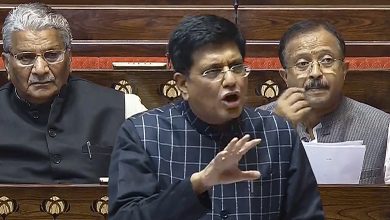Covid-19 pandemic speeds uplinguistic change in World Englishes
Prof. David Crystal, a British linguist, says “Language changes to reflect society. The only languages which do not change, are the dead ones.”
L anguages usuallyadapt to new needs of the society.During this pandemic crisis, many new words and phrases are being widely used in spoken as well aswritten English across the globe. While some of the termsare undoubtedly short-lived, some others are long-lived. In fact, most of these words/terms have just appeared in the language. Therefore, it would be difficult to predict whether these words find place in the dictionaries or not. Such words generally enter into a language through several methods of word formation such as borrowing, back-formations, compounding, blending, acronym, derivations, neologism, calque and so on.
However, this pandemic speedsup a new wave of English words into our day to day conversations through social networks and other sources of communication.For instance,Covid-19, Covidiot, Novel coronavirus (nCoV), Self-quarantine, Zoombombing, Hand sanitizer (sanny), Isolation (Iso), Coronavirus (rona), Quarantine (quazzie), etc. The Oxford English Dictionary (OED)’s executive editor, Bernadette Paton, said that it is a rare experience for lexicographers to observe an exponential rise in usage of a single word in a very short period of time, and for that word to come overwhelmingly to dominate global discourse, even to the exclusion of most other topics. Covid-19, a shortening of coronavirus disease 2019, and its various manifestations has done just that.
As the spread of the disease has altered the lives of billions of people, it has correspondingly ushered in a new vocabulary to the general populace encompassing specialist terms from the fields of epidemiology and medicine, new acronyms, and words to express the societal imperatives of imposed isolation and distancing. It is a consistent theme of lexicography that great social change brings great linguistic change, and that has never been truer than in this current global crisis.
Lexicographers keep updating the dictionaries with new words and revisions from time to time. Beforeentering a new word in a dictionary, they gather sufficient evidence to show how frequently that particular word is used by the writers and speakers. They do a lot of in depth research for providing pronunciation, parts of speech, meaning, definition and it’s usage with suitable examples.
Usually, such process takes a long period. But, there are certain words which enter rapidly in a language and swiftly move to our day to day conversations. Such are the words related to this present pandemic situation. These words are ushered in the language over a couple of months and they became essential in our day to day communication. As a result, lexicographers included them in the dictionaries by making special updates.
OED staff prepared a new listin the month of April, 2020 consisting new words, new sub-entries, updated entries and additional to unrevised entries. Some of those entries related to current pandemic are Covid-19, Self-isolate, Self-quarantine, Social distancing,to flatten the curve, PPE(personal protective (or protection) equipment), Elbow bump, WFH, etc. In a similar way, Merriam-Webster.com dictionary also updated with new words like COVID-19 (is a new name for a new disease, coined as an abbreviated form of coronavirus disease 2019.), Index case, Social distancing, Contact tracing, and Community spread,Physical distancing, Forehead thermometer, Intensivist, WFH (working from home),Community immunity and Herd immunity,Epidemic curve, etc.
The Cambridge Dictionary names’Quarantine’ word of the year 2020. The Cambridge Dictionary editors have also tracked how people are using quarantine, and have discovered a new meaning emerging. The Cambridge Dictionary Publishing Manager, Wendalyn Nichols, said that the words that people search for reveal not just what is happening in the world, but what matters most to them in relation to those events. Neither coronavirus nor COVID-19 appeared among the words that Cambridge Dictionary users searched for most this year. We believe this indicates that people have been fairly confident about what the virus is.
In fact, there are some specialized and technical terms which are exclusively used by professionals in a given field but such terms are usually not found in general-use dictionaries. However, covid-19 triggered such terms into general vocabulary and set as an exampleto represent howlinguistic change happensrapidly in a language.
Dr. Suman Kothakonda
Assistant Professor,
Department of Linguistics and Contrastive Study of Tribal Languages,
Indira Gandhi National Tribal University,
Email: kothakonda.suman @igntu.ac.in








